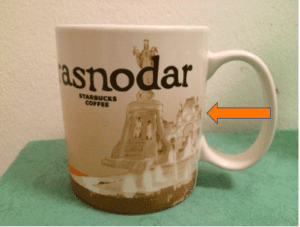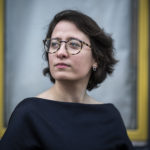While there is a big debate in the US about the old monuments, Russia is erecting new ones. Starting with the eye sore of a Kalashnikov statue in Moscow that had a bit of a glitch of sporting a German rifle instead of the famous Russian export and finishing with a “monument to manspreading” aka Russian Emperor Alexander the Third in Crimea’s Yalta. While manspreading is a great metaphor for the “Crimea reunification”, let’s put aside the Ukrainian side of the issue and take a closer look at the schmock du jour.
Alexander the Third statue is seated somewhat uncomfortably on what looks like a pile of manure, with his hands on a sword and the words “Russia’s only allies are its army and fleet” engraved on the base of the monument. During the unveiling ceremony that was attended by President Putin, the emperor was lauded as the “Peacemaker” who
defended the interests of the country directly and openly, and this policy ensured the growth of Russia’s influence and increase of its authority in the world. The country’s industry was booming and dynamically developing. All the while, [Alexander the Third implemented a] labor legislation [that] was far more progressive than in many other countries at that time. Workers’ rights were protected, factories and plants were opened, new branches of industry were created, railway network was expanded […]
At the same time, he believed that a strong, sovereign, independent state should rely not only on economic and military might, but also on traditions; that it is important for a great people to preserve their identity, and that progress is impossible without respect for their history, culture and spiritual values.
Let’s review Alexander the Third’s record in more detail, shall we? Apart from his “progressive” labor legislation (that, for instance, allowed for a 12 hour working day, but limited 12-15-year-old kids’ working day to 8 hours), he is also infamous for introducing a bunch of less delightful legislation. One of the most notorious pieces is the so called “cook’s children circular” that limited access to school and higher education for “the children of coachmen, lackeys, cooks, laundresses, small shopkeepers and similar people” who were “not supposed to aspire to achieve secondary and higher education”. Revolutionary activity in Tsarist Russia, including the group that planned and executed the assassination of Tsar Alexander the Second, was seen as a direct consequence of too much education, the excess of which had to be dispensed with.
In general, Alexander the Third really loved Russian language and history. So much so, that under his rule all non-Russian provinces (e.g., Poland, Finland, Baltics) were forcibly russified and education in local languages was severely curtailed. His policies and rhetoric favouring ethnic Russians over other peoples were so prominent that current Russian far-right groups see him as one of the major champions of the Slavic race. Alexander (just like his modern Neo-Nazi admirers) was particularly not crazy about the Jews, whom the population blamed for the assassination of his father and responded with country-wide pogroms. Around 1882, most Jews were deported back to the Pale of Settlement if they managed to get out and their access to higher education was restricted to quotas of 10% even in the Pale of Settlement (metropolitan higher education was available to a mere 3%). Solzhenitsyn was particularly indignant that Alexander the Third was falsely ascribed a quote that “whenever the Jews are beaten up, it warms my heart, [but we shouldn’t let that happen]”. Alas, the Peacemaker did say that after the Warsaw Jewish pogrom and members of his government routinely blamed the massacres on Jews who supposedly brought it on themselves by exploiting ethnic Russians.
Alexander the Third’s foreign policy record could be considered rather spotty for a true Russian nationalist. For starters, he sold Alaska to the United States and thus gave rise to the political career of Sarah Palin. But other than that, he was very cautious and managed not to involve Russia in a single (big) war during his rule (hence his moniker “the Peacemaker”) instead negotiating alliances all over the world and re-igniting the Russian-French relationship. He did continue Russian imperial conquest of Central Asia, adding another 430,000 square kilometers to Russian territory and millions of indigenous peoples he considered “non-Slavic savages” all the way down to the border with Afghanistan. These days, however, it’s hard for the far-right groups in Russia to decide whether fondness for a larger territory trumps the otherness of its population.
 Which reminds me: Starbucks, please remove the “Tsar’s Arch Commemorating Alexander the Third’s visit to Krasnodar” from the Starbucks Cup Krasnodar edition. There are other non-racist landmarks in Krasnodar. Aurora cinema, for instance. After all, nobody wants to be associated with a chauvinistic pig who restricts access to higher education.
Which reminds me: Starbucks, please remove the “Tsar’s Arch Commemorating Alexander the Third’s visit to Krasnodar” from the Starbucks Cup Krasnodar edition. There are other non-racist landmarks in Krasnodar. Aurora cinema, for instance. After all, nobody wants to be associated with a chauvinistic pig who restricts access to higher education.


0 Comments